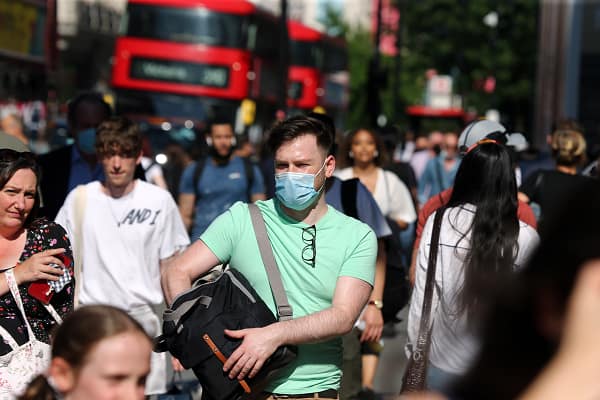A new online survey by Ipsos MORI in partnership with EU|UK Forum shows 6 in 10 (58%) of Britons have seen no difference to their everyday life as a result of Britain’s exit from the European Union. However, more have seen a negative impact than a positive one; 28% say Brexit has made their daily life worse while only 1 in 10 (11%) say there has been a positive change.
The proportion of people who say they have seen a negative impact on their daily lives rises among certain groups, including Graduates (38%), those in Scotland (35%), AB social class (35%), and those aged 45-54 (34%). Those who voted for the Labour Party or the Liberal Democrats in 2019 are most likely to say then have seen negative changes (43%) and 55% respectively. Almost half (47%) of 2016 Remain voters say they have been negatively impacted.
Six in ten (59%) say they personally know no one who has been affected by Brexit. Only 9% say they know someone who has been positively impacted by Britain’s exit from the EU, 24% know someone who has been negatively affected.
Britons are most likely to believe Britain’s exit from the EU is working just as expected; 46% say the current situation meets their expectations. Just over a quarter (27%) say that Brexit is working out worse than they had expected, increasing to 45% among those who voted to remain in 2016. Sixteen per cent say it is better than they had predicted.
Regardless of their vote in the 2016 EU Referendum, 24% believe that Britain’s gaining of control over its laws and regulations is one of the most positive outcomes of Brexit. Similarly, 22% believe its ability to respond to the Covid-19 pandemic better is an upside.
Other positive outcomes of Brexit include Britain’s new ability to make its own decisions generally (21%), the ability to make independent international trade agreements (19%) and greater control over immigration and borders (18%).
However, 1 in 5 (19%) say that there are no positive outcomes to Brexit, increasing to 37% of remain voters.
Among those who voted to leave in 2016, 39% say that gaining control of their own laws and regulations was a key positive for Britain. Three in ten (31%) also say greater control over immigration and borders, the ability to make independent international trade agreements and make their own decisions generally are all positive outcomes for the country.
Britons are most likely to choose the increased barrier to trade between the UK and EU as one of the most negative outcomes of Brexit (28%), similarly, a quarter (25%) say the end of freedom of movement between the UK and EU is a significant downside.
One in five (19%) view the decrease in international cooperation between the UK and EU as one of the most negative outcomes while 17% say the same for the increased divisions between the nations of the UK and the uncertainty caused.
Around 1 in 10 (13%) believe there are no negative outcomes to Brexit, increasing to 28% of those who voted to leave in the 2016 referendum.






Leave a Comment